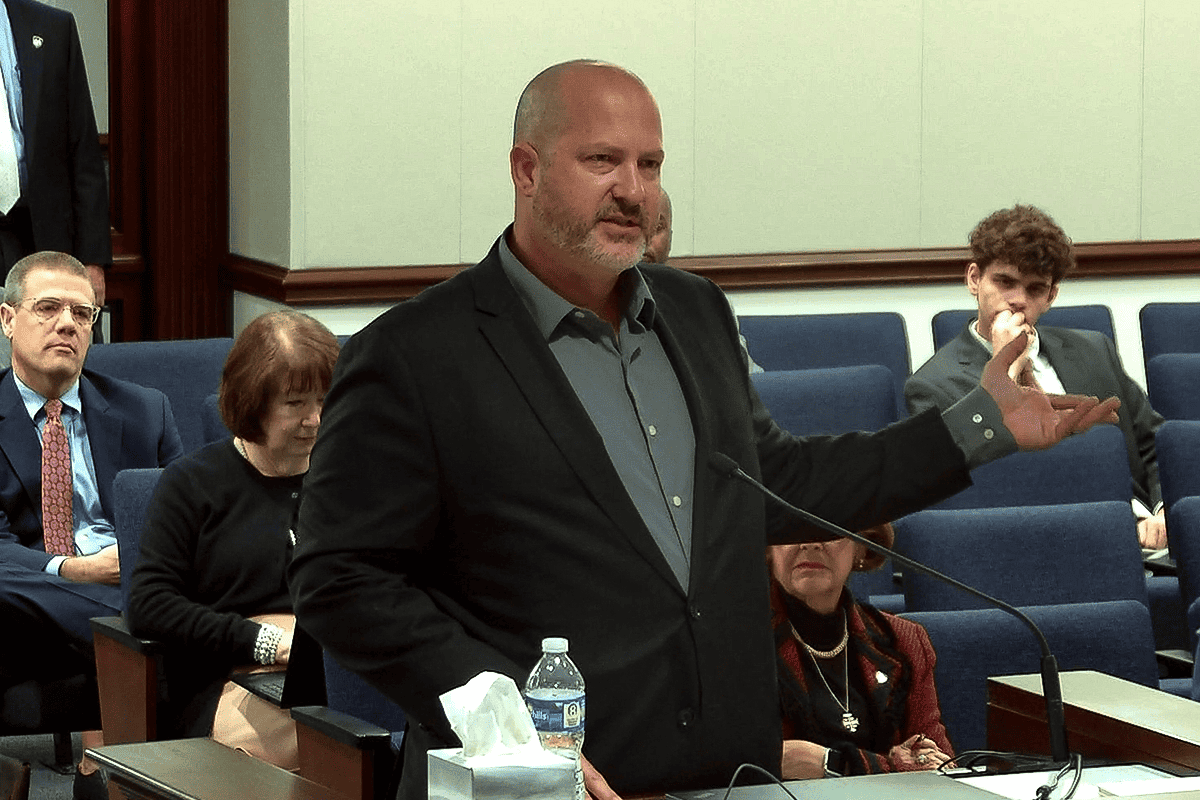Gabby Petito’s father testifies in support of bill to prevent domestic violence homicides
TALLAHASSEE, Fla. – Gabby Petito’s father testified Wednesday on a bill that could bring an assessment program to Florida and possibly prevent domestic violence homicides.
Sen. Erin Grall, R-Fort Pierce, filed SB 638, which passed favorably 8-0 through the Senate Committee on Criminal Justice Wednesday.
Rep. Jessica Baker, R-Jacksonville, filed similar legislation in the Florida House.
Grall said the bill would bring the Lethality Assessment Program to Florida, which she said is a multi-pronged strategy to prevent domestic violence homicides.
During a cross-country van trip, Gabby Petito was found strangled to death in Wyoming.
Her fiance, Brian Laundrie, reportedly confessed to killing Petito in a notebook letter found near his body in a Florida reserve. His death was ruled a suicide through a self-inflicted gunshot wound.
Petito’s father, Joseph Petito, spoke in favor of Grall’s bill.
“It is my feeling the entire state should take on this program,” Petito said. “There is nothing more important, everybody that’s here, we all have friends, family, children, you know, that we want to make sure that they’re here tomorrow. And that’s what these questions will do.”
The bill would require training to be available to law enforcement officers to administer lethality assessments to ask a victim specific questions.
Grall said the bill would allow law enforcement officers who are trained in the evidence-based lethality assessment to “easily and effectively” identify victims of intimate partner violence who are at high risk of being killed or seriously injured by their intimate partner.
The 12 questions on the Lethality Assessment Program, according to the bill, include:
- Did the aggressor ever use a weapon against you or threaten you with a weapon?
- Did the aggressor ever threaten to kill you or your children?
- Do you believe the aggressor will try to kill you?
- Has the aggressor ever choked you or attempted to choke you?
- Does the aggressor have a gun or could the aggressor easily obtain a gun?
- Is the aggressor violently or constantly jealous?
- Does the aggressor control most of your daily activities?
- Does the aggressor reside in the same household with you?
- Is the aggressor employed?
- To the best of your knowledge, has the aggressor ever attempted suicide?
- Do you have a child whom the aggressor believes is not the aggressor’s biological child?
- Has the aggressor ever followed, spied on, or left threatening messages for you?
The senator said that once a “high-danger” victim has been identified, the first responder immediately connects the victim through a hotline call to the local domestic violence service program for emergency safety planning and enhanced service provision.
A law enforcement officer would also advise the victim of the results of the assessment and refer the victim to the nearest locally certified domestic violence center, according to the bill.
Petito said the questions in the bill are “the most important thing.”
“When these questions are asked, and they can answer no to all the questions, but an officer’s intuition will turn around and tell them ‘they’re still in a bad situation, let me get this advocate on the line,’” Petito said. “Because most people don’t know where to go when it comes to services and what services they have at their disposal.”
The Lethality Assessment Program was created in 2005 by Maryland Network Against Domestic Violence. According to the National Sexual Violence Resource Center, the program is used in 32 states.
If both the Senate and House version of the bill pass through both legislative chambers and are signed by the governor, the legislation will take effect July 1.




